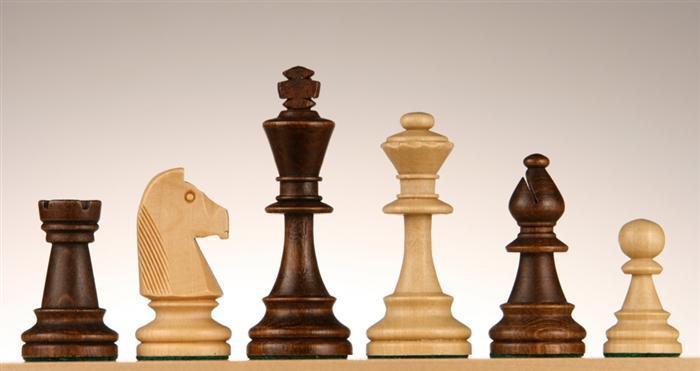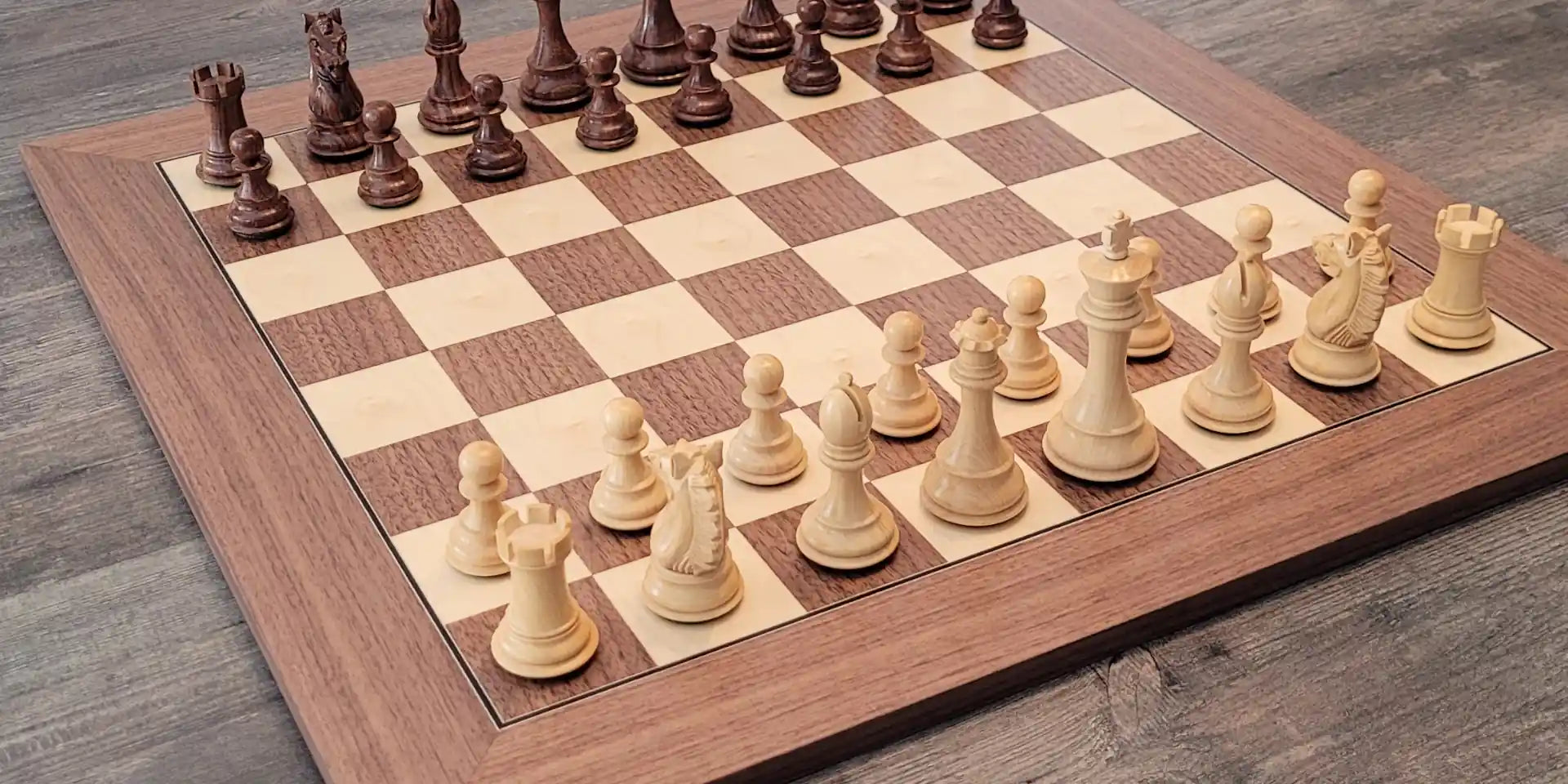Tips to Recognize Chess Traps
Wiki Article
Why You Must Play Chess: The Advantages of Involving in This Ageless Pundit Obstacle
Chess is even more than a basic video game; it acts as a strenuous psychological workout that develops different cognitive abilities. Players participate in critical reasoning and create analytical capacities, which can have lasting benefits in day-to-day life. The self-control needed for renovation fosters perseverance and resilience. The real essence of chess lies not simply in its intellectual needs however in the links it fosters within a community. Checking out these dimensions discloses much about why chess continues to be timeless.Enhancing Cognitive Abilities
Playing chess considerably enhances cognitive skills, making it a valuable task for individuals of all ages. The video game demands critical reasoning and foresight, calling for gamers to anticipate their challenger's steps while developing a winning technique. This mental workout sharpens emphasis and focus, essential components of cognitive feature.
Chess encourages creative thinking, prompting players to check out innovative techniques and unusual techniques to the game. As they browse the chessboard, individuals create patience and resilience, crucial attributes for cognitive growth. On the whole, the complex cognitive advantages of chess make it an enriching quest, advertising lifelong imagination and intellectual involvement.
Enhancing Problem-Solving Talents
Countless researches have actually revealed that involving in chess can greatly improve analytic capacities. The game calls for players to assess complex settings and expect the challenger's moves, cultivating important thinking abilities. As they navigate various circumstances, chess gamers develop the capacity to review multiple end results and make calculated choices under pressure. This process boosts their ability to approach real-life troubles with a structured way of thinking.Furthermore, chess promotes the recognition of patterns and the application of logical thinking, skills that are important in effective analytical. Players discover to examine threats and rewards, fine-tuning their judgment in unsure circumstances. The repeated nature of chess play reinforces these skills, allowing individuals to move their enhanced analytical abilities to scholastic and expert contexts. Eventually, chess acts as a useful tool for anyone looking for to sharpen their analytical skills and improve their total cognitive functioning in difficult circumstances.
Growing Persistence and Technique
While involving in chess can be an exciting experience, it also calls for a considerable level of patience and self-control. Gamers must discover to very carefully consider each move, considering possible outcomes and methods. This thoughtful technique promotes a frame of mind that values long-term success over immediate satisfaction. In chess, hasty choices often result in negative effects, reinforcing the importance of taking one's time to analyze the board and anticipate an opponent's actions.
Self-control is additional grown with consistent practice and research study. Players often dedicate hours to improving their abilities, examining methods, and evaluating previous games. This dedication to mastering the game instills a sense of duty and willpower, essential qualities that extend past the chessboard. Inevitably, the mix of patience and self-control not just enhances a gamer's chess capabilities but likewise adds to personal growth, gearing up individuals with essential tools for navigating obstacles in numerous facets of life.
Fostering Creative Thinking and Imagination

Planning relocations entails not just reasoning yet additionally the ability to expect an opponent's reactions, encouraging gamers to picture numerous paths and options. As players trying out different tactics, they discover to introduce and adapt, improving their innovative analytical skills.
In addition, the game's intricacy invites gamers to explore unusual concepts and strategies, causing personal styles of play. This exploration supports a feeling of imaginative expression, as each player crafts their own approach to challenges on the board. Ultimately, chess comes to be a canvas for creative thinking, permitting continue reading this individuals to reveal their one-of-a-kind point of views while developing their imaginative capacities
Structure Social Connections and Community
Playing chess supplies opportunities for people to network through tournaments and neighborhood chess clubs. These environments promote connections amongst gamers, creating a sense of community centered around a shared enthusiasm. Taking part in these tasks not only enhances skills but likewise constructs long-term connections.Networking Through Tournaments
When individuals engage in chess competitions, they frequently locate themselves involved in a vivid area of like-minded people. These events give an excellent system for gamers to forge links, share methods, and celebrate their interest for the game. Participating in friendly competitors fosters sociability, as players from varied backgrounds integrated to test each other. Networking chances abound, with lots of individuals forming long lasting friendships that prolong beyond the chessboard. Additionally, these events frequently bring in enrollers and chess fanatics, additionally enhancing the capacity for specialist connections. As players participate in conversations regarding methods and experiences, they construct a network that can result in future collaborations and opportunities within the chess globe and past.Local Chess Clubs

Offering an Enjoyable and Engaging Obstacle
Chess uses an uniquely stimulating experience that captivates gamers of every ages, as it combines critical reasoning with the thrill of competitors. This ageless video game provides an engaging difficulty, urging people to assume seriously and artistically. Each suit unfolds as a fight of wits, where players should expect their opponent's steps while devising their own methods.The intellectual interaction chess provides is matched by its capability to entertain. Players usually discover themselves immersed in the game, misplacing time as they navigate complicated placements and tactical dilemmas (Chess). This heightened emphasis promotes a sense of achievement, particularly when a challenging action brings about victory
Chess promotes social interaction, enabling gamers to bond over common experiences and challenges. The video game's endless variants ensure that no two sessions are alike, keeping individuals enthusiastic to refine their skills and approaches. This dynamic mix of obstacle and pleasure makes chess an alluring search.
Frequently Asked Questions
Can Chess Be Played Online or in Person?
Chess can be played both online and face to face. On the internet platforms supply gamers the comfort of competing versus challengers worldwide, while in-person video games cultivate social communication and physical presence, improving the total experience.What Age Is Ideal to Beginning Learning Chess?
Professionals suggest that kids can begin discovering chess as very early as age five or six. At this age, they can comprehend basic concepts, boosting cognitive abilities while fostering a love for the game that lasts a lifetime.Are There Chess Tournaments for Beginners?
Yes, there are chess events particularly created for newbies. These occasions supply a supportive atmosphere for beginner players to get experience, boost their skills, and take pleasure in the affordable spirit of chess without dealing with sophisticated challengers.For how long Does It Take to Become Competent at Chess?
Ending up being competent at chess typically needs consistent practice over several months to years. Variables such as private devotion, previous experience, and research study of methods substantially affect the time required to reach a qualified level.What Resources Are Readily Available for Learning Chess Approaches?
Many resources exist for learning chess approaches, including on the internet tutorials, publications by prominent writers, chess applications, and interactive websites. Lots of gamers additionally benefit from joining neighborhood clubs or taking part in online forums for real-time understandings.Report this wiki page